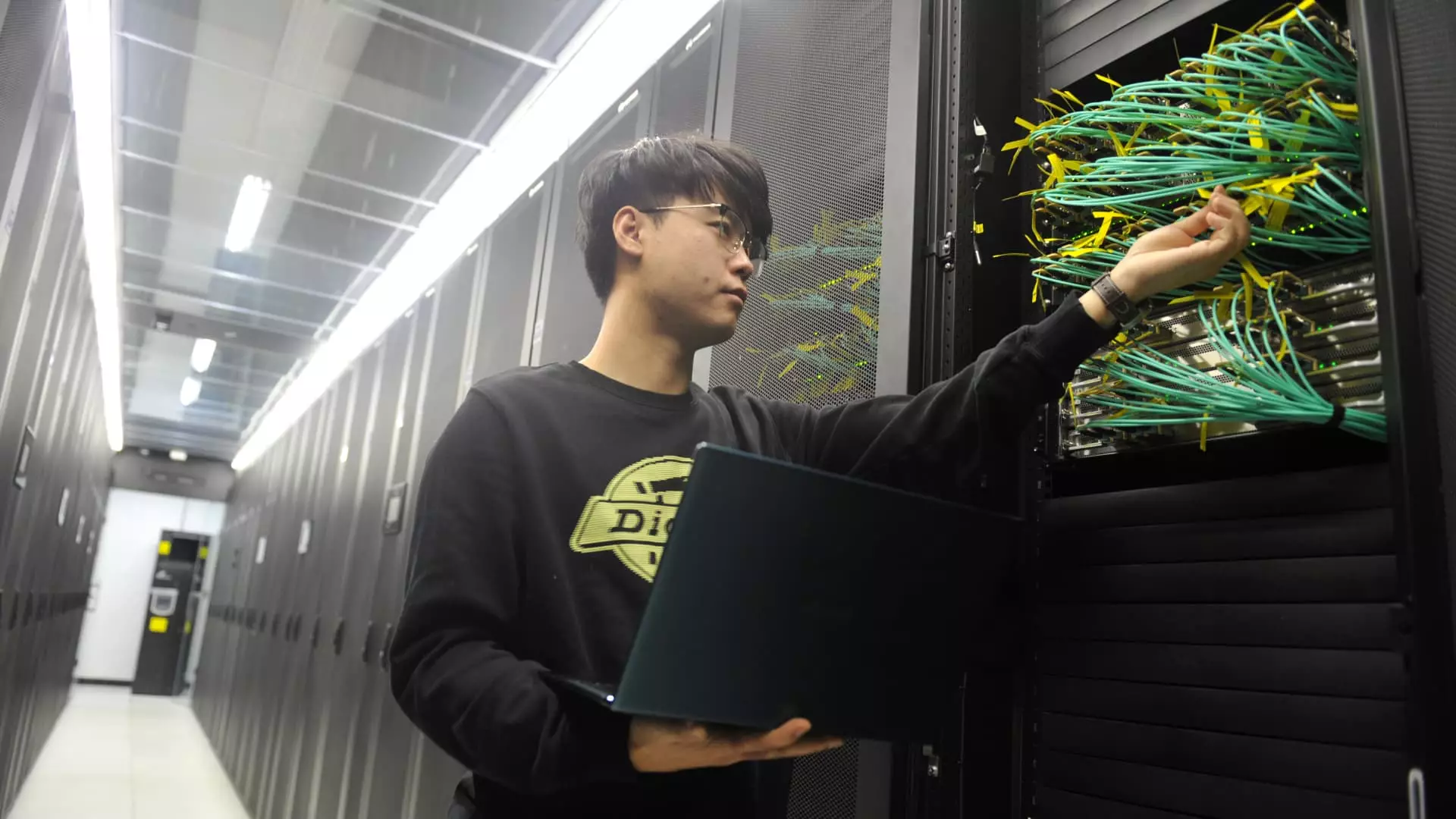The U.S.-China trade tensions seem to be perpetually escalating, presenting significant risks and uncertainties for businesses on both sides. However, rather than resigning themselves to a defeatist mindset, some Chinese firms are seizing this moment to innovate rapidly, particularly in the realm of generative artificial intelligence (AI). With analysts like Bernstein recognizing this pivotal shift towards AI technology, it begs the question: Could China’s forced pivot to technological self-sufficiency prove advantageous in this high-stakes trade environment?
The backdrop of tariffs, retaliatory duties, and geopolitical squabbles doesn’t seem so much a hindrance as a catalyst for change. As trade barriers rise, such as those enforced by the U.S. during previous presidential terms, firms might find opportunities hidden within adversity. The notion of localization, which suggests businesses invest in domestic capabilities in order to withstand international pressures, could very well serve as a framework for Chinese firms to thrive in the current climate.
Innovation as a Response to Adversity
The strong emphasis placed on generative AI stems from the reality that Chinese enterprises are now looking inward, evidenced by rapidly increasing investments in AI technologies. As corporations scramble to adopt offerings like DeepSeek for better operational efficiencies, they see promising returns in cost savings and productivity enhancements. Bernstein’s findings indicate a potential turnaround in corporate earnings, suggesting that the AI boom may end up being a silver lining amidst turbulent trade relations.
Companies such as Kingsoft Office and Kingdee—both rated highly by investment analysts—exemplify this proactive attitude. By developing powerful software platforms that capitalize on AI’s capabilities, they are not only reinforcing their market position but also paving the way for a self-sustaining technological ecosystem. This reliance on innovative solutions is a testament to the resilience of the Chinese tech industry, which isn’t just reacting to trade barriers but actively leveraging them to find new opportunities.
The Role of Government and Policy
The direct involvement of the Chinese government in promoting and funding advancements in tech makes a compelling case for the country’s aspirations in the AI sector. Through strategic initiatives to bolster local industries, the Chinese policy framework encourages companies to delve deeper into AI and digital solutions. For instance, as tariffs have limited certain import markets, the Alibaba ecosystem has thrived as a viable alternative, enabling companies to adapt without excessive dependency on foreign technology.
Moreover, projections from the Economist Intelligence Unit predict a staggering 25% growth in AI-related spending for the next couple of years. This fundamentally shifts the focus and trajectory of a multitude of businesses, creating an environment where innovation isn’t simply encouraged—it’s essential. China’s determination to establish itself as a leader in AI could potentially serve as a turning point not just in its own economy but in the global landscape as a whole.
Corporate Resilience and Market Adaptation
Despite the ongoing tensions, certain sectors like cloud computing remain largely insulated from tariff fallout, reaffirming Chinese companies’ capabilities to thrive. This resilience points toward a potential shift in market dynamics fueled by pent-up demand for digital infrastructure. The strengths of firms like China Mobile, GDS, and Vnet highlight the importance of having a firm grip on the domestic market while still exploring global opportunities. This dual focus allows these companies to thrive even as geopolitical winds blow unfavorably.
Xi Jinping’s administration continues to push for investment in domestic growth initiatives, effectively using trade tensions as an opportunity to steer the narrative towards national pride and technological leadership. This sentiment resonates significantly across industries, demonstrating a willingness to adapt that is hard to overlook.
AI as China’s New Frontier
Rather than simply reacting defensively to U.S. policies, it appears that the Chinese tech sector is riding a wave of creativity and ingenuity in AI development. With companies like Kingsoft Office integrated into a growing ecosystem of domestic technology solutions, it becomes increasingly clear that generative AI could be a cornerstone of China’s economic strategy moving forward. This pivot to technology is not an endorsement of a restrictive trade approach but rather a necessary adaptation in an evolving world market.
Consequently, the rising Chinese commitment to AI places the nation at the forefront of what might be termed the “new industrial revolution.” The interplay between national policy and corporate agility will undoubtedly define not only China’s economic landscape but possibly reshape the contours of the global technology industry itself. Far from being a constraint, the trade war skyrockets the urgency and determination behind China’s ambitious AI aspirations.

